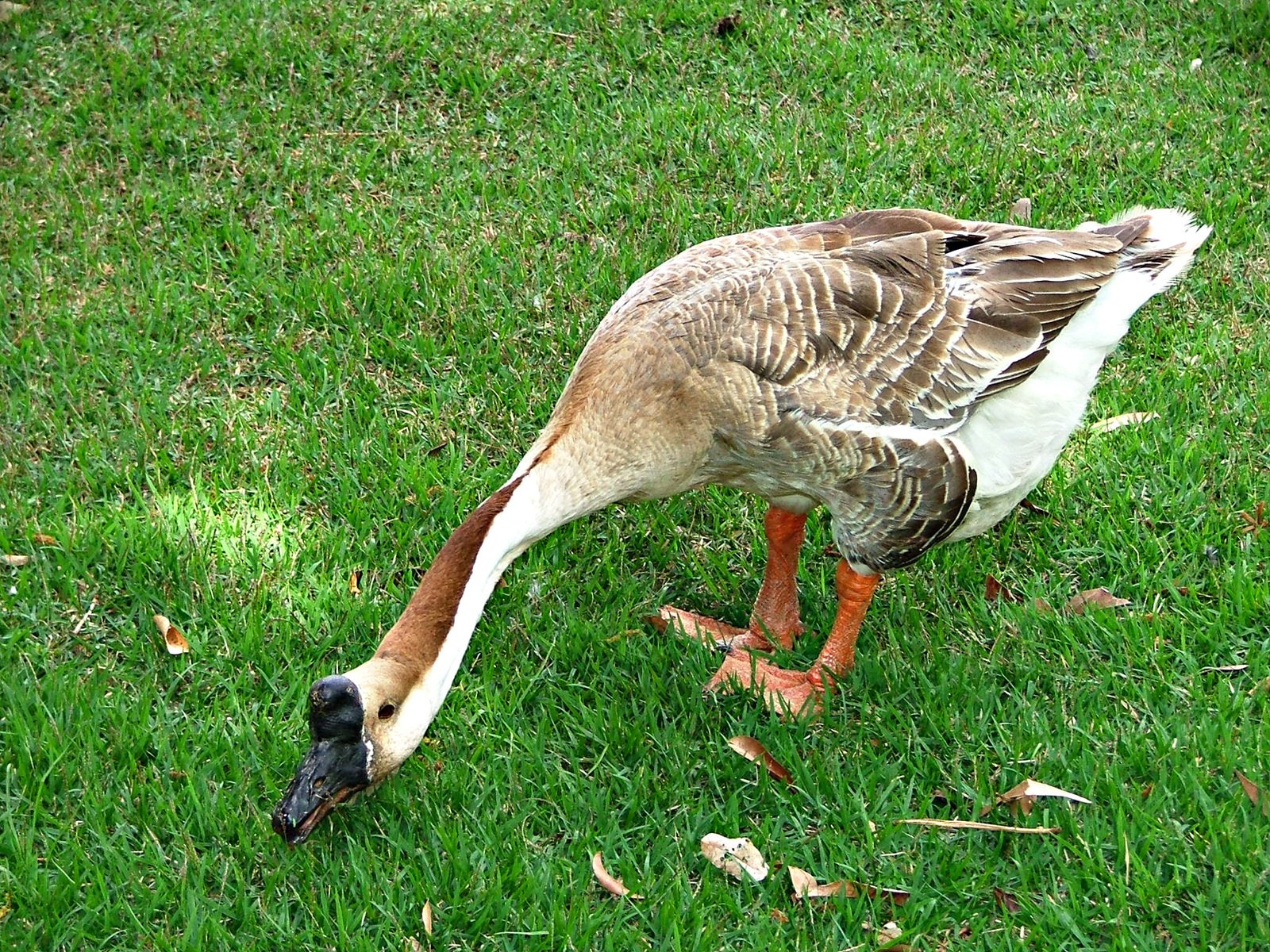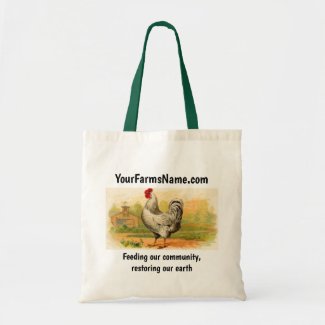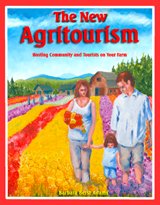Considering a Flock of Geese?
© National Lilac Publishing, LLC A version of this article by Barbara Berst Adams was originally published in AcresUSA Magazine
 The brown Chinese goose descended from the wild swan goose.
The brown Chinese goose descended from the wild swan goose.The goose -- a star of nursery rhymes and a very common farm bird since long ago -- can make an enjoyable addition to a backyard homestead or small farm. I raised my flock of nine on small acreage without the intent of slaughtering them for meat, and found them useful in a number of ways.
Uses
Geese lay large thick-shelled white eggs beginning in early spring and finishing before summer. I raised Pilgrim and Chinese geese, both breeds laying consistently, with the Chinese laying a bit more over the entire season. The eggs were delicious both fried and scrambled, especially coming from my green pastured free-ranging flock. My kids loved them. The geese laid more than we could eat, though, and a local crafter wanted to buy some for his art. He carved delicate designs from goose and ostrich eggs with a dentist drill, and purchased ours for that purpose for one dollar each.
Geese eat more fresh plants than chickens or ducks, and have been used successfully as weeders and grass clippers. A study from the University of Tennessee Agricultural Experiment Station found that geese used as cotton weeders proved profitable. Geese have also been used for years as strawberry weeders, sometimes eliminating almost all hand labor while they simultaneously drop fertilizer. They are removed, however, as the berries start to ripen, not only because they are very fond of most ripe fruit, but also because regulations concerning fresh manure near harvest time for food crops usually prohibits it.
Geese have the wonderful characteristic of devouring many plants but refusing to touch others. The trick in using them as weeders is to know if the crops you grow are in the devouring or refusing category. Some crops they’re known to refuse include certain cutting flowers (including roses, iris, gladiolus, chrysanthemums, peonies and dahlias). Geese have also successfully weeded fields of sugar beets, potatoes, onions, raspberries, blueberries, and grapes (again, removed before fruit ripens), asparagus and mint. They weed right up close to the delicate crops, pulling weeds and grasses almost as soon as they emerge, without disturbing crop roots. Plus, they work dawn ‘til dusk, seven days a week. Nursery owners have also employed weeder geese, and they have been used in nut groves and fruit orchards.
In orchards, geese keep the weeds and grass down while also eating dropped fruit that could otherwise harbor disease. This was how we used our geese. Be aware, though, that geese are tall and strong. I put my flock in a very young orchard of semi-dwarfs where they enjoyed nibbling at the tender young bark, and easily reached up to take their share of apples on low growing branches. Once the trees were older and the bark had toughened, their bark eating was no longer an issue. They continued, however, to literally jump up to grab the first and lowest ripening apples. But then, our two farm dogs were guilty of the same trick. I just decided to write off any low-growing fruit for these furry and feathered marauders, but that may not be practical in a commercial orchard. Geese can always be removed before the first ripening. Once again, though, check your area’s regulations on fresh animal manure (vs. properly composted and aged manure) near harvested crops to know if they’d be allowed to stay in your orchard long enough to be of benefit.
Geese are also famous as guard birds. Being more aggressive than ducks and chicken hens (chicken roosters are also aggressive), geese will lower their heads, face-off and even charge possible predators, biting them with their strong bills, or sometimes latching on and pounding with their strong wings. Many people are successful at using geese as guards. I found them useful even for discouraging human salesmen. Not only do they threaten to charge, they sound the alarm with an ear-piercing screech. Whereas ducks or chickens might go silent to keep themselves unnoticed when something unusual occurs, geese prefer to let the whole world know as loudly as possible. When content, people describe their peaceful sounds as gentle ‘mooing’ and their calling sounds as ‘honking.’ But their “warning screech” can’t go ignored. When deciding whether geese are for you, realize that even joggers going by your property or the mail carrier may well cause them to sound the alarm, and decide if that would be a curse or a blessing to your lifestyle.
Also, while geese are considered aggressive, they have their breaking point where fear will silence them and predators can and will get to them. And understandably, domestic geese have lost some of the protective instinct and abilities that wild geese still have. I had the sad experience of our neighbor’s large strong dog break in and eliminate all but three of my geese, and we never heard a sound from the geese until it was too late. Once geese finally become afraid enough to turn and run away without sounding the alarm or fighting, the predator instinctively goes after them with even more vengeance. I wouldn’t advise using geese to protect from larger, determined predators.
As far as their degree of aggressiveness towards people, there seems as much variation as there are personalities among humans. I’ve heard stories of flocks trapping a neighbor woman inside her house, honking threats outside her front porch, until she finally called authorities to remove them. I raised my geese from goslings when they were innocently dependent on me and very trusting. One day, as their feathers were starting to fill in, they seemed to gather for a private meeting to plot their future as adult geese. From then on, they would challenge my authority and considered just about any human a possible threat. Knowing I was more often the bringer of favorite food treats, they allowed me to get closer than most other humans, but still often lowered their heads in warning.
Once out of curiosity, when they were in the mood to charge me, I decided to just stand there and not move instead of waving them away. They came right up as though expecting some kind of reaction from their target. When it never happened, they walked off looking for more satisfying entertainment. Another time, while sunbathing on a lawn chair I’d taken out to the pasture, they surrounded the chair and I, partly in curiosity about what I was doing, and part preparation for possible attack. As I continued to ignore them, they eventually lay down in the grass next to me and contentedly took in a little sunbathing as well.
Goose droppings are high in nitrogen and once composted, helped us grow some of the best pumpkin patches around. However their droppings are plentiful. I sometimes wondered how the law of physics could seemingly allow more to come out of them than was going in. Unlike some mammals such as dogs who like to eliminate away from their den, cats who bury, and llamas who choose a specific pile area, geese release droppings wherever they happen to be, almost in conjunction with their breathing. In general, it’s best to keep geese away from porches and areas of a lot of people traffic.
Raising rare breeds
If interested in raising rare goose breeds, one of the best places to start investigating, especially if you’re in the USA or Canada, is the Livestock Conservancy at livestockconservancy.org. This non-profit works to keep heritage breeds of farm animals from becoming extinct, offering photos and breed information. They list animals under these categories of endangerment: critical, threatened, watch, recovering and study. One of the breeds we raised, the Pilgrim, is under the threatened category, which I learned of through this organization. Breeders of these rare types are also listed, and they even give out micro-grants to people interested in working with certain breeds, including using rare breeds as an agritourism attraction on your farm.
Care
No matter which breed is chosen, geese have particular needs exclusive even to their other poultry barnyard buddies: the duck and chicken, and prospective owners can learn fascinating information by perusing books and reports on proper goose care. As a quick overview, their need for higher quantities of fresh greens than their more omnivorous and scavenger poultry yard mates makes free-ranging or moveable pens attractive to them. Unlike many breeds of chickens and ducks, their egg laying is very seasonal in spring only. When free-ranging, geese are brain wired to move in flocks and need to operate with at least three of their own kind. Supplemental feed depends, of course, on the amount and type of food they are able to forage on their own. Just remember that what’s good for chickens might not be good for geese.
As mentioned above, their aggressiveness does not make them immune to attack from predators, not even the neighbor’s otherwise friendly dog, and their large size can make them easy targets to spot and corner. Tight structures protected from night predators, including raccoons, are necessary. Unless human, domestic dog, or other unusual daytime predators are a threat, during the day they can usually get by with 30-inch fences to keep them where you want them, since they rarely fly. Most birds of prey will leave them alone because of their size, but eagles have been known to take a goose now and then (one farmer swears an eagle even took a newborn lamb in the field). Learn about the large birds of prey in your area, including their territories, and decide if deterrents are necessary, such as access to solidly covered areas during the day, fake bald eagles, or farm dogs trained to handle the geese well but chase off birds of prey. One farmer used an old kids’ trampoline as portable shade and as a solid cover from raptors for his poultry. Since eagles are territorial most of the time, large fake eagles are used to deter other eagles from moving into the territory. Eagles do congregate without territorial objections in some communal feeding grounds, though, but those areas are usually loaded with natural food sources, such as along rivers with spawning salmon. All birds get used to an immobile fake bird of prey, though, so it needs to be moved to various locations, with its scary eyes facing upwards and not downwards at the geese to avoid the geese themselves getting too nervous. After all, fake eagles are more often used to scare away smaller birds such as crows or wild geese, rather than to discourage other eagles. Over time, it could also cause them to relax their own protective instincts when a real predator comes near because of continued lack of harm from the fake one.
Remember when fencing and choosing sites for your geese, though, that geese are curious and will take advantage of unplanned opportunities. If you’re growing tender greens of any sort, keep the geese far away from this area. In fact, you might not even want to tell them such an area exists. My geese escaped through an undetected hole in their fence into my market garden, where, like piranhas, they eliminated to the stub all the gourmet Batavian lettuce I was going to harvest the next day for local restaurants. A number of sad stories have reported that geese and other poultry love anti-freeze, also, which painfully poisons them (and anything else) to death.
Like ducks, geese love water for swimming and will even be grateful for a plastic kiddie pool (they won’t thank you personally but their dipping, diving and after-swim preening will assure you they’re happy.) Any place where water congregates will usually attract them. Be careful of straight-sided, deep watering bins where they can manage to flap their way in, but once heavier with water, cannot get out.
With proper care, geese can be an enjoyable addition to your property, with their antics allowing you to witness why they have been an endearing character in tales of the past, and perhaps inspire you to write goose stories of your own.










